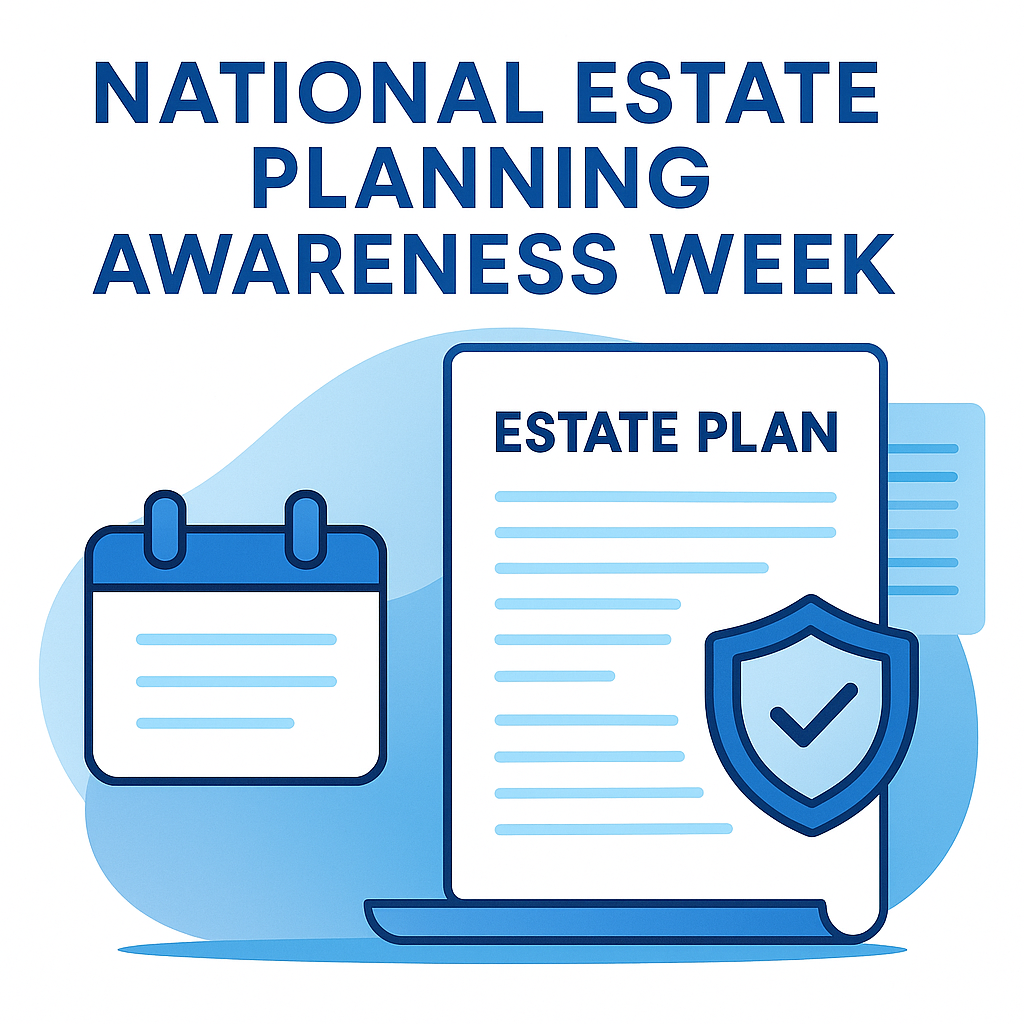An estate plan is more than a set of documents — it’s a framework for protecting your wishes, your assets, and the people you care about.
Each October, National Estate Planning Awareness Week serves as a timely reminder of how important it is to have your legal and financial affairs in order.
For many families, estate planning feels like something to “get to later.” Yet waiting often leads to confusion, conflict, and unnecessary expense at the very moment when clarity matters most.
Estate planning is not only about distributing property — it’s about ensuring continuity, protecting those you trust, and creating peace of mind.
Why Estate Planning Matters
A well-crafted estate plan provides more than instructions; it provides stability.
When plans are unclear, loved ones are left to guess at your intentions, often at a time of stress or grief.
Thoughtful planning can help:
- Prevent family conflict by clearly outlining who will make decisions and how assets will be divided.
- Avoid court intervention through proper use of trusts, beneficiary designations, and powers of attorney.
- Protect assets from unnecessary taxation, delays, or creditor exposure.
- Ensure continuity if you become incapacitated, allowing a trusted person to manage finances and healthcare decisions.
- Preserve your legacy, whether that means caring for family members or supporting charitable causes.
The real value of an estate plan lies in its ability to make difficult moments easier — for the people you love and for those responsible for carrying out your wishes.
What a Complete Estate Plan Includes
Every plan is different, but most effective estate plans contain several key elements working together:
- A Last Will and Testament — designates beneficiaries, appoints guardians for minors, and directs how your estate should be handled.
- Trusts — help avoid probate, provide privacy, and can protect assets for future generations.
- Powers of Attorney — authorize someone you trust to make financial decisions if you cannot.
- Health Care Proxy and Living Will — allow you to designate who will make medical decisions on your behalf and outline your treatment preferences.
- Beneficiary Designations — on life insurance, retirement accounts, and other assets, ensuring these align with your broader plan.
Each document serves a different purpose, but together they form the foundation of a comprehensive plan that functions during life and after death.
Taking the First Step
Creating an estate plan is not about predicting the future — it’s about preparing for it.
Even a simple plan provides clarity, reduces uncertainty, and gives those around you a clear path forward.
During National Estate Planning Awareness Week, take the opportunity to review your existing documents or start the process if you haven’t yet.
Having a plan in place now can make all the difference later.
Contact Sverdlov Law PLLC today at www.sverdlovlaw.com or 212-709-8112 or book a time on our calendar https://calendly.com/rochelle-sverdlovlaw/15min for a FREE evaluation of your case and get started with a plan tailored to your family’s needs.
This information is provided as a general overview and does not constitute legal advice. For personalized guidance, consult a New York special needs attorney.


